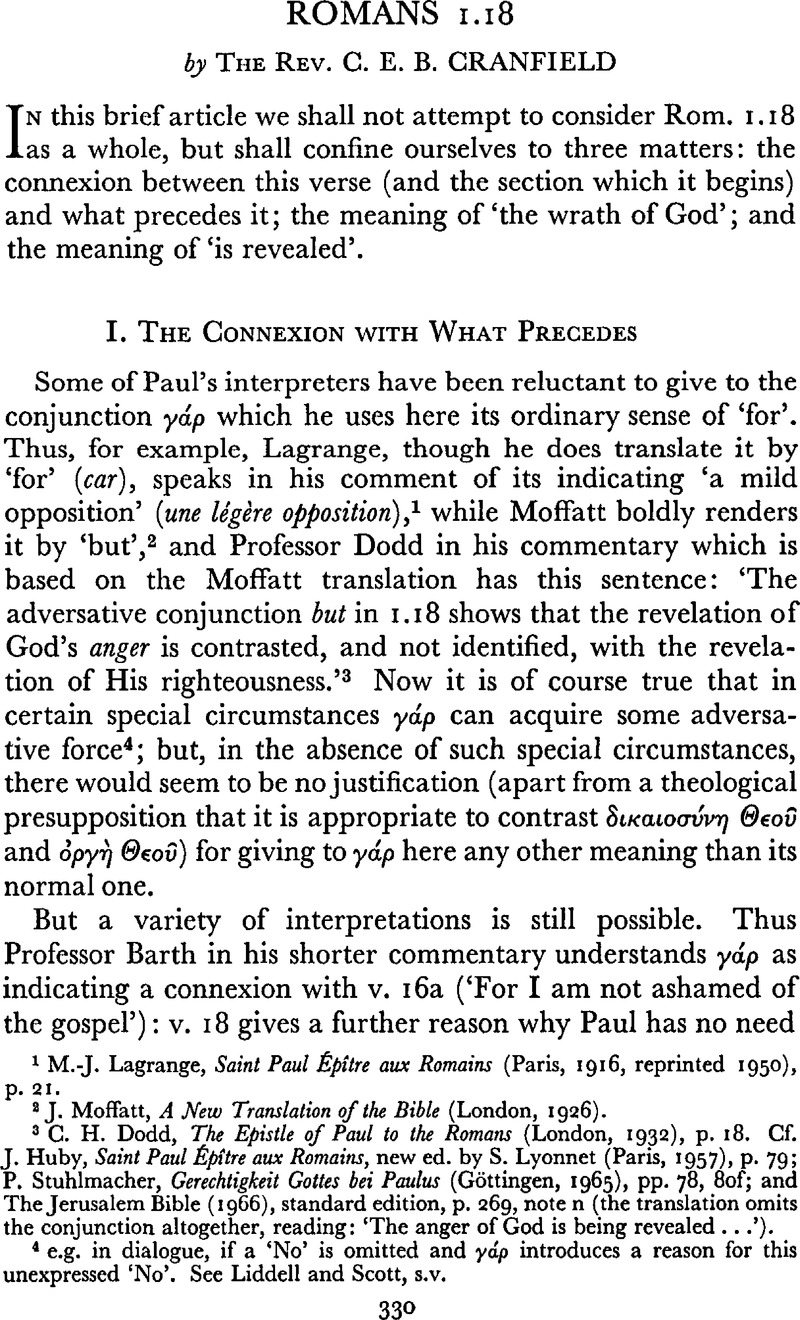No CrossRef data available.
Published online by Cambridge University Press: 02 February 2009

page 330 note 1 Lagrange, M.-J., Saint Paul Épître aux Romains (Paris, 1916, reprinted 1950), p. 21.Google Scholar
page 330 note 2 Moffatt, J., A New Translation of the Bible (London, 1926).Google Scholar
page 330 note 3 Dodd, C. H., The Epistle of Paul to the Romans (London, 1932), p. 18Google Scholar. Cf. Huby, J., Saint Paul Épître aux Romains, new ed. by Lyonnet, S. (Paris, 1957), p. 79Google Scholar; Stuhlmacher, P., Gerechtigkeit Gottes bei Paulus (Göttingen, 1965), pp. 78Google Scholar, 80f; and The Jerusalem Bible (1966), standard edition, p. 269, note n (the translation omits the conjunction altogether, reading: ‘The anger of God is being revealed …’).
page 330 note 4 e.g. in dialogue, if a ‘No’ is omitted and γ⋯ρ introduces a reason for this unexpressed ‘No’. See Liddell and Scott, s.v.
page 331 note 1 Barth, K., A Shorter Commentary on Romans (London, 1959), p. 25f.Google Scholar
page 331 note 2 Sanday, W. and Headlam, A. C., The Epistle to the Romans (Edinburgh, 5th ed., 1902), p. 40.Google Scholar
page 331 note 3 Barrett, C. K., The Epistle to the Romans (London, 1957), p. 34.Google Scholar
page 331 note 4 ibid.
page 332 note 1 It is to be noted that to regard the wickedness and consequent disasters of the present, though not substantially different from those of past ages, as a sign of the imminence of God's decisive redemptive action, as an apocalyptist might, is one thing: to appeal to them as demonstrating that this action has occurred in particular events of the recent past is another thing altogether.
page 333 note 1 op. cit., p. 22.
page 333 note 2 op. cit., p. 23.
page 333 note 3 op. cit., p. 24.
page 333 note 4 Dodd himself would seem to be hinting at this possibility a couple of pages before, when he speaks of the prophetic teaching ‘that disaster is not an outbreak of irresponsible anger, but an expression of the outraged justice of God’ (p. 22).